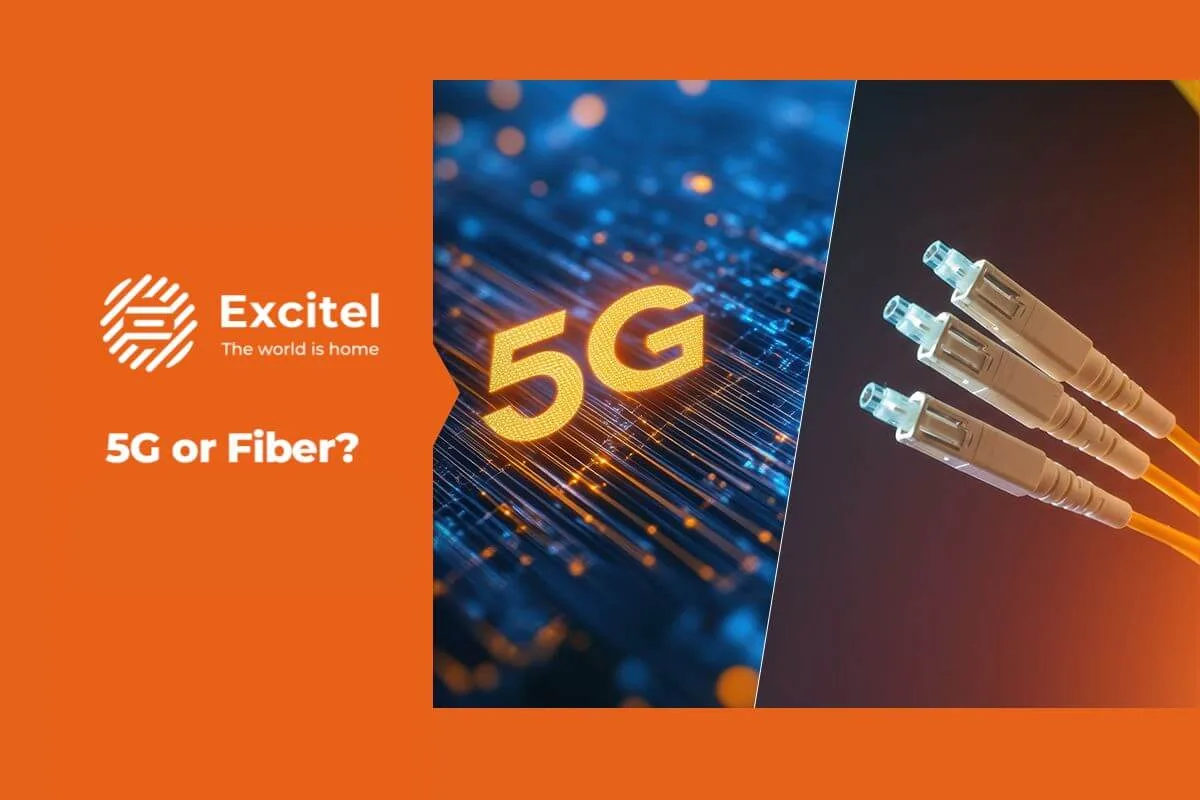
With the rollout of high-speed wireless networks supporting tens of Mbps to up to Gbps, broadband services now include both wired and wireless, and wired internet is no longer a necessity for calling it "broadband." With the launch of wireless 5G services, Airtel and Jio both offer Fixed Wireless Access (FWA) services, which they call AirFiber, a wireless broadband service leveraging their existing 5G networks. However, the CEO of the Delhi-based broadband service provider Excitel differs, refusing to call these wireless internet services broadband. He believes that broadband internet means a good wired internet connection.
Also Read: Airtel IPTV Launches in 2,000 Cities: Plans Start at Rs 699 with OTT Streaming Apps
Challenges of Wireless Broadband
Excitel CEO and co-founder Vivek Raina, in an interaction with India Today Tech, says that while 5G and AirFiber are generating buzz in the country, these services cannot overcome the physics of wireless signal degradation and network congestion that plague all mobile-based technologies.
"It's (AirFiber) just repackaged 5G. Mobile networks use shared spectrum — more users, slower speeds. And high-frequency waves (5G) can’t penetrate walls. AirFiber needs line-of-sight, which is impossible in unplanned areas. Telcos are desperate to monetise their unused 5G spectrum. But it's not a fibre replacement. You'll always need wired broadband for TVs, gaming—anything that needs stable speeds," he said, according to the report.
In India, the minimum broadband speed, as per the Telecom Regulatory Authority of India (TRAI), is 2 Mbps (megabits per second). Previously, the minimum broadband speed was 512 Kbps. Hence, any wireless or wired service offering the mandated speeds can be considered broadband.
Read More - Excitel Launches New 300 Mbps Plan With Smart TV, OTT and Live Channels at Rs 999
Targeting Underserved Areas
According to Raina, fiber-optic cables are currently the only way to deliver consistent gigabit-speed internet to homes and businesses, the report said. He sees this as an opportunity for Excitel. Raina believes directly competing with them [big operators like Airtel or Jio] may not be ideal at this time. Instead, he aims to focus on serving areas where Jio and Airtel may not like to venture.
According to the report, Raina calls the 5G broadband a stop-gap or temporary solution for connectivity needs.
Excitel primarily targets unplanned, under-served urban neighbourhoods rather than planned residential areas, where traditional fibre providers hesitate to expand for various reasons. The company is doing this through its Cable Cutter Plan, according to the report.
"Urban India is a mess. Only 25–30 percent of cities are planned —like Delhi's Model Town. The rest? Chaos. Old cities, illegal colonies, wires hanging everywhere. Telcos only served the 30 percent structured areas because laying fibre there was easier. So we bet on this: Bring fast, affordable broadband to unplanned urban India, sell it as entertainment-first," says Raina, according to the report.
Transforming DTH into Wired Broadband
Launched in 2015, Excitel has grown to serve 10 lakh users across 40 cities. Raina reportedly revealed the strategy by explaining the ISP's Cable Cutter Plan. Under this plan, Excitel is focusing on the already existing cable and DTH connections available across cities.
"There are still 12 crore cable or DTH users in India — mostly older folks who just want to flip channels, not choose. We're giving them Android boxes with IPTV: same channels, but add YouTube, OTT. Same price as cable. If they want Wi-Fi later? Rs 200 extra," Raina reportedly explained.
Excitel is working with local cable operators to transform DTH connections into high-speed wired internet. This allows the company to connect with more users and make the transition easier. "The last-mile connectivity is handled by partners, meaning the final stretch of cable from their office to the customer’s home is their responsibility. However, the fibre network up to the partner’s office is entirely ours," Raina explained, adding that this strategy is central to the company's plans for both this year and the years ahead, according to the report.
Also Read: The Internet or Just Cached Data: What Are Users Actually Using?
IPTV and Home Entertainment Expansion
"Excitel is no longer just an ISP, we're becoming a one-stop home entertainment solution. Our biggest bet is IPTV. India has 6-7 crore cable TV homes, and we're ready to disrupt that space. With 1 million plus subscribers today, IPTV is a major growth driver for us, and we’re aiming for 2 million subscribers in the next two years," he reportedly said.
Raina shared that Excitel now operates in over 55 cities across the country. "For us, this isn't just about growth, it's about owning the future of home entertainment. South India is a big focus for us. After building a strong base in Hyderabad and Bangalore, we're now doubling down on Tamil Nadu and Chennai. Our goal is to reach more users across unstructured Bharat (with) high-speed internet," the report quoted Raina as saying.















